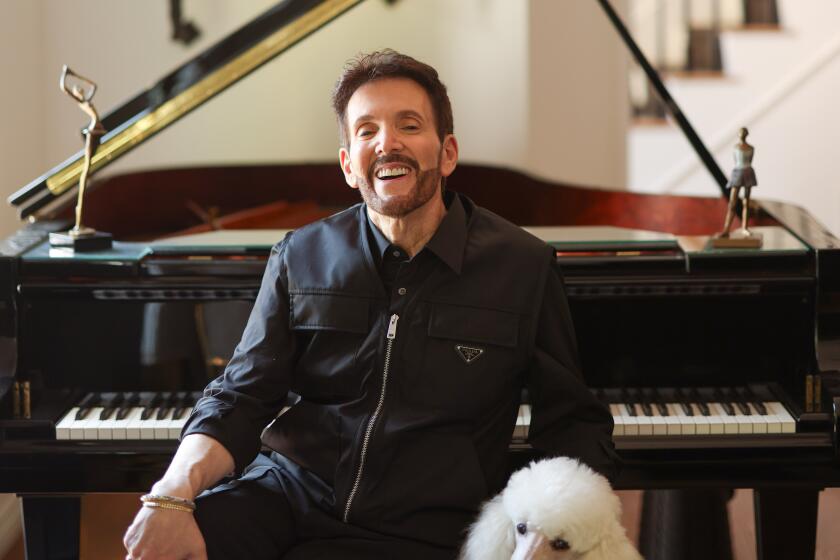Divine, 42; Actor in Camp-Sleaze Films
Divine, the 300-pound actor whose portrayals of outrageous women in camp-sleaze movies like “Pink Flamingos” made him a cult-film hero--and heroine--died Monday in his sleep in a Los Angeles hotel room.
The actor, a former Baltimore hairdresser whose real name was Harris Glenn Milstead, was 42. He apparently died of asphyxiation, according to a public relations spokesman. The Los Angeles County coroner’s office has begun an investigation, said John West of PMK Public Relations.
Milstead, who had played only one non-transvestite role in his career, in 1985, was in Los Angeles to appear as “Uncle Otto” in an episode of a Fox Broadcasting syndicated television series, “Married . . . With Children.”
Divine’s latest and most mainstream movie, “Hairspray,” starred him as both a housewife and a redneck TV station owner in a nostalgic look at Baltimore, circa 1962.
His best-known role, in “Pink Flamingos,” was as a grotesque transvestite competing for the title of the “filthiest person alive,” a title that Divine won with a notorious scene of eating dog excrement.
In the 1985 suburban satire “Polyester,” a hit at the Cannes Film Festival, he played Francine Fishpaw, a housewife victimized by Tab Hunter as a seamy, swindling Lothario.
And in “Lust in the Dust,” a camp version of the 1946 film “Duel in the Sun,” he played a greedy dance-hall girl, who rumbled through a fight scene with Lainie Kazan.
After “Lust in the Dust,” he was an acknowledged character-actor star, with a Manhattan apartment and a Florida home to show for it.
Since his first role--a modeling satire called “Eat Your Makeup,” made in 1968 with his high-school friend, producer/writer/director John Waters--Divine launched into “shock-value” parody roles, from Jacqueline Kennedy Onassis to a dance-hall girl to a role in which he was sexually assaulted by a giant broiled lobster.
“I hate that when they call me a transvestite,” he said in a Washington Post interview last month. “If I was a transvestite, I’d be sitting here with a little crocodile handbag and a polka-dot bow. Those are my work clothes. That’s how I make people laugh. I don’t see the harm in that.”
Divine said it was all in the line of work. On his own time, he confined his “flash” to a large diamond-stud earring. He wore conventional black tie tuxedo to the Baltimore premiere of “Hairspray.”
In 1981, after a nine-year separation from his shocked parents, the actor reconciled with them, after learning that his father had muscular dystrophy.
“They’re both very proud now and very happy,” Divine said.
“Audiences love Divine,” Waters said. “He’s always their favorite actor in every film I make. It seems unfair that he hasn’t gotten his due as an actor. After all, Milton Berle can wear a dress and it doesn’t bother anyone. But if they’re suspicious that someone’s not a heterosexual, then you’ve got trouble.”
Divine told the Post last month that “I’ve tried everything, and now I don’t try anything any more. . . . People just aren’t gay or straight, it’s whatever turns you on.”
More to Read
Only good movies
Get the Indie Focus newsletter, Mark Olsen's weekly guide to the world of cinema.
You may occasionally receive promotional content from the Los Angeles Times.











